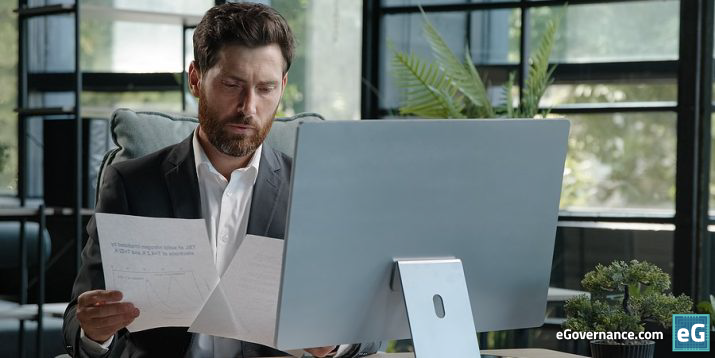Each year, organizations spend countless hours and millions of dollars conducting eDiscovery for pending litigation, FOIA requests, audits and more. Common eDiscovery challenges often make the process overwhelming, but proactive information governance and wise use of technology can help.
Collect Massive Amounts of Data from Disparate Sources
Civil and criminal cases frequently hinge on digital evidence, and that can mean data requests involving millions of document files. With modern collaboration methods, those documents include everything from email and voicemail to word processing files, social media and more.
In addition to including many different types of files, eDiscovery must also address numerous data environments. For instance, employees may use both company-owned and personal devices, from laptops to phones and tablets. Additionally, the organization may store data both on-premises and in multiple cloud environments and numerous applications.
Legal teams must find efficient methods to locate, collect and process that data. This involves finding a balance between collecting all relevant information and yet avoiding a data dump.
With the right tools, legal teams can locate and assess the data in place before collecting anything. An early data assessment that involves an initial in-place review of data delivers several key benefits. Legal teams can identify and address potential roadblocks early on. They also avoid over-collection of data, saving significant time and money.

Prevent Digital Spoliation of Evidence
While gathering these massive amounts of data, legal teams must take care to prevent destruction of or tampering with relevant data. This includes altering or deleting documents in any way. Whether intentional or not, this destruction of evidence, or spoliation, can result in stiff penalties and cause enormous problems.
To avoid spoliation claims, the team must use defensible methods to collect and preserve data. A critical component of this involves legal holds. Once again, early data assessment plays a key role. When the legal team identifies potentially relevant information early on, they can immediately apply legal holds to protect that data.
Technology has simplified legal holds, allowing legal teams to automate the process of creating and sending legal hold requests and releases. Reliable legal hold technology also includes auditing capabilities that ensure defensibility.
eDiscovery Challenges to Ensure Data Security
When organizations collect huge amounts of data and send it outside the organization, they effectively lose control of that data. Consider the thumb drives and other copies of data held by opposing counsel and expert witnesses. Every copy of the data distributed represents a cyber security risk.
Organizations reduce that risk by mapping and indexing the data, making it possible to conduct a preliminary review in place. Done well, this will reduce the amount of data that needs to be collected.
Taking the process a step further, the organization can collaborate with outside counsel on keywords and other search criteria. They can then gather the data set into one place and grant outside counsel conditional access to run reviews and publish for litigation. Keeping sensitive data in house ensures that the organization retains control and can audit any access.

Address eDiscovery Challenges with Unique eDiscovery Solution
Locating, collecting, and preserving data in a defensible way can prove incredibly difficult and time consuming when organizations do not have control of their data. And because of the amount of data and the time involved, eDiscovery costs typically represent from 20 to 50 percent of the costs of litigation.
Proactive organizations meet eDiscovery challenges with a strong foundation of information governance, aided by the right technology. When companies know where data resides, who owns it and who can access it, eDiscovery becomes much less painful. Legal technology such as legal holds software and automated early case assessment further streamlines the process.
eGovernance provides a comprehensive eDiscovery solution to reduce discovery overhead and improve the speed and efficiency of managing requests across disparate systems. Our unique tools allow organizations to centralize eDiscovery. Whether legal counsel reviews data in place or extracts copies for more resilient retention requirements, the data stays secure.
eGovernance eDiscovery Solutions
Providing a set of sophisticated and simple to use tools to search, refine and extract data in support of FOIA requests, litigation or internal audits; eGovernance provides organizations with rapid and efficient data discoveries to meet ever growing regulatory and financial deadlines.
